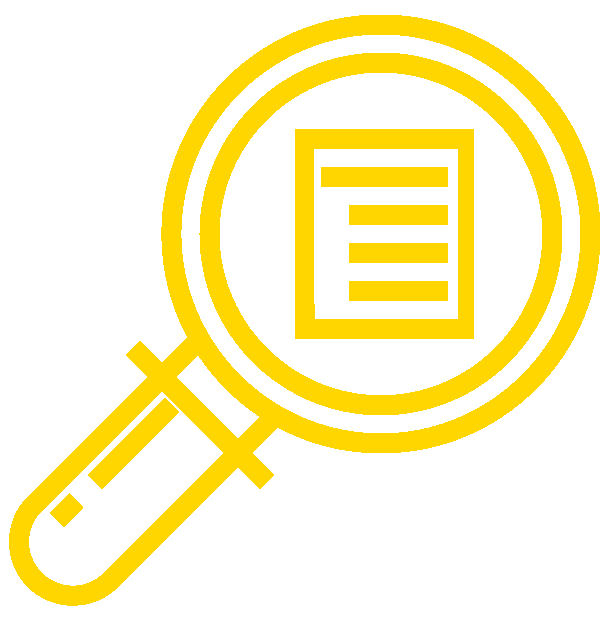
The content, assignments, and assessments for Precalculus are aligned to the following learning outcomes. A full list of course learning outcomes can be viewed here: Precalculus Learning Outcomes.
Module 1: Introduction to Functions
Describe properties of functions and their relationships
- Identify and evaluate functions
- Calculate the domain and range of a function
- Describe change behaviors of graphs
- Evaluate composite functions
- Transform functions
- Solve absolute value functions
- Find inverse functions
Module 2: Linear Functions
Understand linear functions, their graphs, and how they relate to data
- Evaluate linear functions
- Graph linear functions
- Model real world scenarios with linear functions
- Use linear models of data to make predictions
Module 3: Polynomial and Rational Functions
Evaluate polynomial and rational functions and their graphs
- Simplify complex number expressions
- Understand quadratic functions
- Identify power functions and polynomial functions
- Graph polynomial functions
- Divide polynomial functions
- Find the zeros of polynomial equations
- Graph rational functions
- Find inverse functions
- Solve direct, indirect, and joint variation problems
Module 4: Exponential and Logarithmic Functions
Model growth and decay patterns with exponential and logarithmic functions
- Evaluate exponential functions
- Graph exponential functions
- Use logarithmic functions
- Graph logarithmic functions
- Expand and condense logarithmic expressions
- Solve exponential and logarithmic equations
- Use exponential and logarithmic models
- Fit exponential models to data
Module 5: Systems of Equations and Inequalities
Evaluate systems of linear and non-linear equations with both two and three variables
- Solve systems of linear equations in two variables
- Solve systems of linear equations in three variables
- Solve and graph systems of nonlinear equations and inequalities
- Decompose partial fractions
- Evaluate matrices and matrix operations
- Write and solve systems with Gaussian Elimination
- Solve systems with inverses
- Solve systems with Cramer’s rule
Module 6: Sequences, Probability, and Counting Theory
Solve sequence and counting problems
- Write the terms of a sequence
- Evaluate arithmetic sequences
- Evaluate geometric sequences
- Find the terms of a series
- Solve counting problems
- Use the binomial theorem
- Compute probabilities
Module 7: Trigonometric Functions
Evaluate trigonometric functions using angles and right triangles
- Find and use angles
- Evaluate sine and cosine functions
- Understand other trigonometric functions
- Use right triangle trigonometry
Module 8: Periodic Functions
Analyze the graphs of trigonometric functions
- Graph sine and cosine functions
- Analyze and graph other trigonometric functions
- Use inverse trigonometric functions
Module 9: Trigonometric Identities and Equations
Solve trigonometric equations using identities
- Solve trigonometric equations with identities
- Use sum and difference formulas
- Use double-angle, half-angle, and reduction formulas
- Use sum-to-product and product-to-sum formulas
- Solve trigonometric equations
- Model trigonometric equations
Module 10: Further Applications of Trigonometry
Apply trigonometric rules to evaluate more complex graphs and equations
- Solve non-right triangles using the Law of Sines
- Solve non-right triangles using the Law of Cosines
- Identify and use polar coordinates
- Graph polar equations
- Evaluate the polar form of complex numbers
- Find parametric equations
- Graph parametric equations
- Perform vector operations
Module 11: Analytic Geometry
Analyze the graphs and equations of conic sections
- Evaluate ellipses
- Evaluate hyperbolas
- Evaluate parabolas
- Evaluate the rotation of axes
- Evaluate conic sections in polar coordinates
Module 12: Introduction to Calculus
Describe how to find limits and derivatives of functions
- Find limits using graphs and tables
- Find limits using properties
- Determine continuity of functions
- Find the derivative of a function
Candela Citations
CC licensed content, Original
- Learning Outcomes. Provided by: Lumen Learning. License: CC BY: Attribution
CC licensed content, Shared previously
- Magnify. Authored by: Eucalyp. Provided by: Noun Project. Located at: https://thenounproject.com/term/magnify/1276779/. License: CC BY: Attribution
